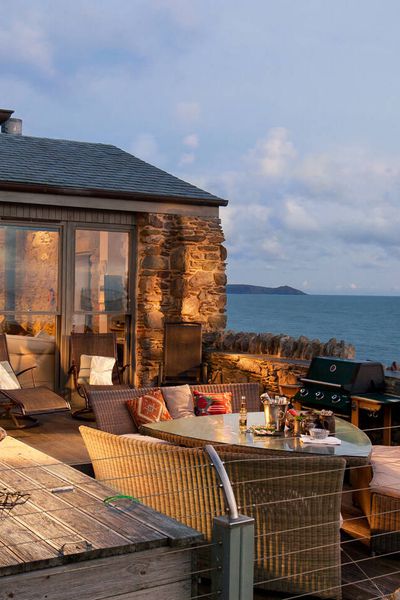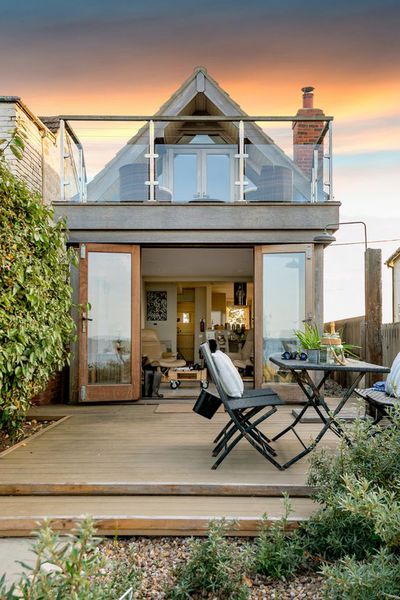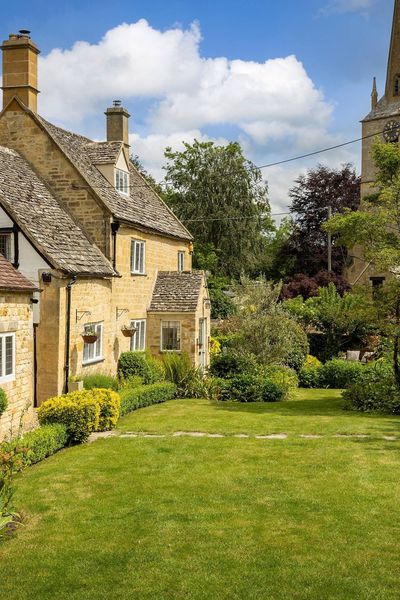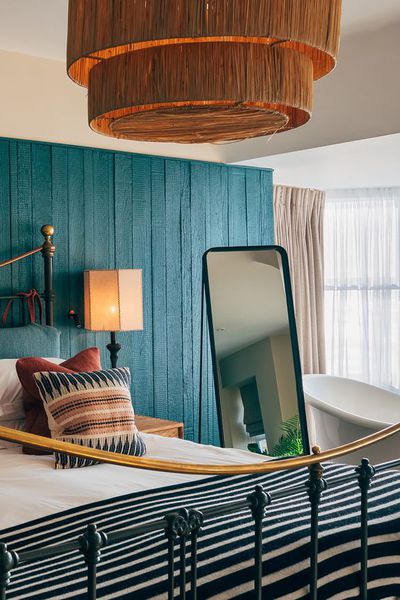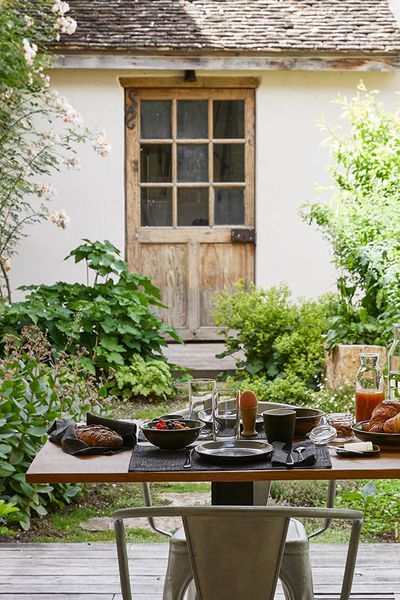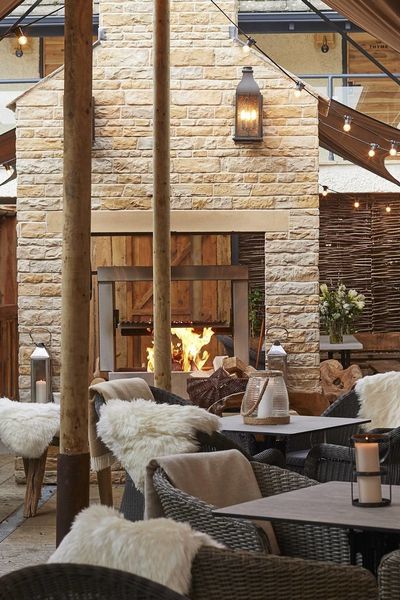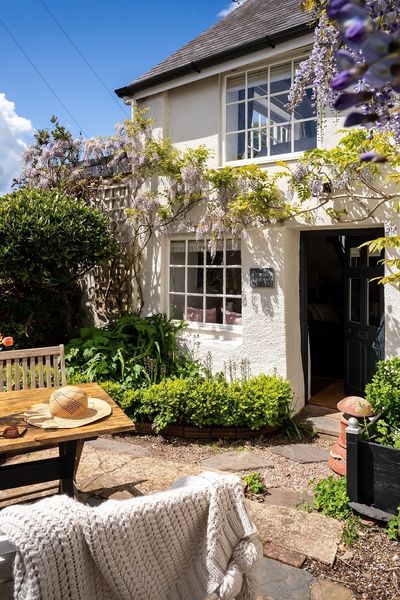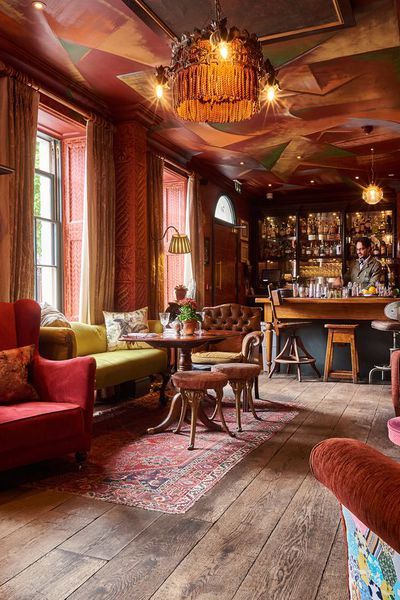
Flowers, indulgent meals, poetry… perhaps there’s something less obvious that still speaks of romance? How about wrapping up in lots of layers, packing a warm drink or a wee dram, and heading into the wild for a romantic stargazing session? Open your eyes, open your mind and discover our guide to stargazing in Northumberland and across the UK.
It’s a fact, stargazing is good for you
The sheer scale of space has the ability to instantly, deeply affect us, as we contemplate our tiny lives amongst the ethereal magic of a vast star-spangled night sky. In the same way that we know being in nature is good for us on a cellular level, so is contemplating our existence by gazing upwards.
Being immersed in the serene night sky is an opportunity to slow down, quiet your brain and enter a state of mindfulness. With all your usual distractions removed and forgotten, you’re free to sink into that meditative state. Achieving a greater sense of perspective creates enormous benefits for your creativity and your overall outlook. What are you waiting for?
Where to begin?
If you’re wondering where on Earth to make a start, you’ll be delighted to know that the UK is spoiled for choice. Six of our National Parks – Exmoor, Brecon Beacons, Snowdonia, North York Moors and Yorkshire Dales, and Moore’s Reserve in the South Downs, have been awarded International Dark Sky Reserve status. And Northumberland National Park, with England’s most pristine dark skies, is an International Dark Sky Park with acclaimed Gold Tier status.
A Dark Sky Reserve is a designated area with minimal artificial light pollution which tends to be sparsely populated but has good access for visiting. Thanks to Britain’s high northern latitude and long winter nights, an array of constellations and a couple of galaxies are often visible and you may even be in with the chance of spotting the ever-elusive Northern Lights.


Northumberland National Park, International Dark Sky Park, Gold Tier
Tucked in Northumberland National Park, the Kielder Observatory, powered by wind and solar, hosts all sorts of stargazing activities year-round and is one of the best spots to watch shooting stars flare, satellites flash past and the moon glide serenely above. But remember, you don’t need an observatory or expensive kit to get started. Choose a clear night with minimal light pollution and all you need to do is look up to see thousands of stars, the Milky Way and even the Andromeda Galaxy (2.5 million light years away) with the naked eye.
When to stargaze
It’s possible to stargaze on clear nights throughout the year but the best time is winter. Yes, it’s chillier but the cold air tends to make the sky much clearer and you can start your adventure earlier thanks to 4pm sunsets in the depths of winter.
What to bring
It’s possible to see plenty with only the naked eye but do allow 15 minutes or so for your eyes to adjust to the dark. Alternatively, you can invest in a decent pair of binoculars to help you see details on the moon and other faraway planets.
Don’t forget to wrap up warm (whatever the time of year), bring a thermos and a camping or picnic blanket so you can lie back and gaze without craning your neck.
Identifying constellations and planets only needs a little practice and there are plenty of apps to download. Best not to look at your phone too much while you’re out as the more your eyes adjust to the dark, the more you’ll see in the sky.


What to watch for
Stargazing when there’s a full moon makes moon gazing pretty spectacular but its brightness can dominate the sky making stars less visible. Try going out either side of a full moon for best star spotting results.
The first star to look for is Polaris, the North Star. It’s always visible in the northern hemisphere, and unlike all other stars, it doesn’t move. Locate it at the tip of Ursa Minor’s tail.
Constellations
Orion (the hunter), with belt and sword it is one of the most famous constellations and genuinely bears a resemblance to its namesake.
Leo (the lion) is one of the easiest constellations to spot and visible anywhere in the UK.
Ursa Major (the plough) is visible all year in the northern hemisphere. It looks like a pan with a long handle.
Ursa Minor (the little bear) is visible all year in the northern hemisphere. Let your eye travel directly up from the last two stars in Ursa Major’s cup to Polaris which is the tip of the bear’s tail.
Cassiopeia (the queen of Aethiopia) looks like a giant ‘W’ shape and represents the queen sitting on her throne.
Hydra (the water snake) is the largest and longest constellation in the night sky and looks like a writhing sea serpent.
It’s as easy as one, two, three, stargaze
- Choose a clear night and head to your nearest National Park
- Wrap up warm (even summer nights can get chilly out in the wilderness)
- Bring a blanket, thermos, binoculars
- Download a stargazing app to help identify constellations
- Let your eyes adjust to the dark, takes around 15-20 minutes
- Star gaze to your heart’s content and take some time to reconnect with nature, with yourself and your stargazing companion
- Record the constellations, planets and galaxies you spotted when you get home
National Parks
The UK’s 15 National Parks, which include six Dark Sky Reserves, are beacons of hope to the great outdoors as they strive to protect and conserve their pristine landscapes for the wildlife that call them home and for future generations to reconnect with nature. We believe it’s part of our collective responsibility to cherish and protect these iconic national treasures.
The benefits of escaping into nature and spending time gazing up are not to be underestimated and Northumberland National Park is one of the best places to start.
Lord Crewe Arms at Blanchland
Blanchland, Northumberland
Strathspey Lodge
Duthil, Highland
Upper Crumble
Cartmel, Cumbria
View all our special places to stay in Northumberland >
Want more travel inspiration? Get our email updates direct to your inbox.
Sign up >Share this article:
You might also like
Pocket guide to Northumberland

Carmen McCormack
Guest Expert
8 min read
Five must-visit castles in wild Northumberland

Carmen McCormack
Guest Expert
5 min read
Short stomps and hearty hikes into cosy Northumberland pubs

Carmen McCormack
Guest Expert
5 min read
